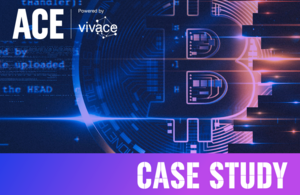Building future understanding to develop policies today
Unlocking expert knowledge and developing a range of feasible potential scenarios enables a wider understanding of both threats and opportunities.

Governments and policymakers often have to create policies designed to capture both threats and opportunities in emerging technologies and practices without knowing exactly where these are heading.
Doing this effectively requires unlocking expert knowledge through a discovery phase which creates a wider understanding of the problem. And it is where the Accelerated Capability Environment (ACE)’s Futures & Insight (F&I) team is often brought into play to help share expertise and develop a range of feasible potential scenarios.
The F&I team consists of analysts who are extremely knowledgeable in their own specialisms, but also connected into an extended network of experts who have intimate and detailed knowledge of different challenge areas from working within diverse industries. These include academics from within the ACE Research Network, as well as non-academic subject matter experts from across the Vivace supplier community and wider industry.
Tapping into this expertise can help develop a range of scenarios based on emerging and future technology trends. These, in turn, can be used to inform as well as stress-test policy development, both on a macro and micro level, enabling it to be forward-looking and proactive.
Two case studies in this area underline how discovery work can help frame the problem to be solved and build an evidence base upon which policy is developed.
The Home Office wanted to understand how future technology trends could affect the behaviour of terrorists in areas such as recruitment, radicalisation and incitement. ACE assessed emerging and future technologies such as deepfakes and augmented reality in discussion with academic and private sector subject matter experts. Scenarios were developed, along with threat and impact probabilities and capability timeframes, to provide a base against which policy and strategy development could be tested.
Another area where our analysts provided insight was cryptocurrencies, as future changes in the way serious organised crime (SOC) groups use these could have a significant impact on the effectiveness of policies being implemented today. Here, the Home Office asked ACE to help it understand potential developments, including the role of technological advances.
ACE identified a range of drivers and barriers to SOC cryptocurrency use, and initial scenarios setting out how these might develop, which were then shared with a group of experts – mostly academics in related fields. These were refined to ten scenarios likely to have most impact, highlighting the technologies that would enable each as well as the potential consequences which could unfold.
In both cases, a discovery phase helped deepen and widen the knowledge base from which policy is being developed, building confidence that, as far as possible, the right scenarios and potential developments are being addressed.